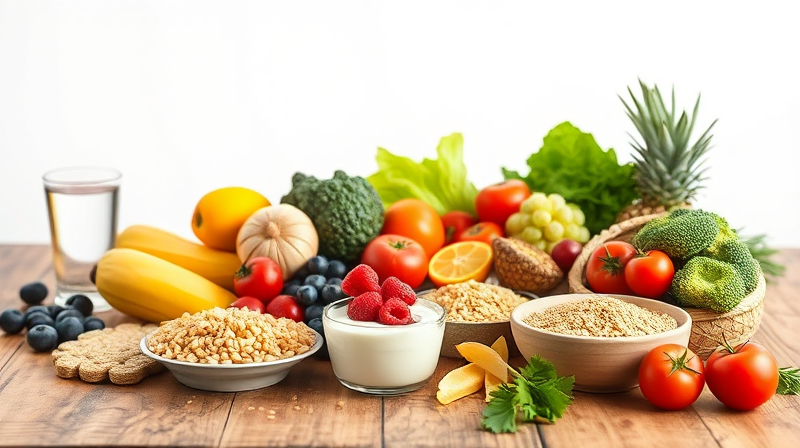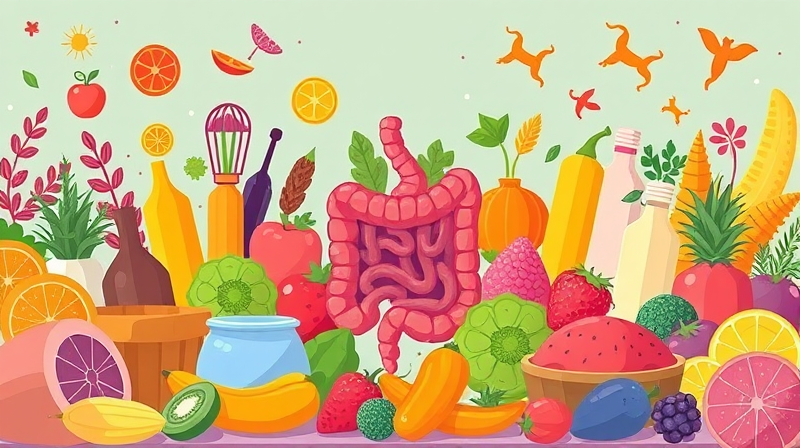Digestive health is the cornerstone of overall well-being and is deeply connected to how we feel, think, and perform each day. In a world where science continues to uncover the complex relationships between food and health, taking an inspiring look at modern eating patterns can lead you on a personal journey of improved vitality. Adopting strategies that nourish the gut may transform not only your physical health but also your mental clarity and emotional balance.
Every meal you eat provides the building blocks for energy and recovery, and can either support or hinder your digestive system’s natural processes. By choosing foods that improve gut health, you can foster a thriving gut microbiome that enhances immunity, reduces inflammation, and even uplifts your mood.
The Power of Fiber-Rich Diets
A high-fiber diet is one of the most effective ways to support your digestive system. Fiber from fruits, vegetables, whole grains, and legumes plays a crucial role in keeping your gut functioning smoothly. Gradually increasing fiber intake is important to reduce any potential discomfort while letting your digestive system adapt to the change.
When aiming to incorporate more fiber into your daily routine, consider this list of key recommendations:
- Variety is Essential: Enjoy an assortment of fiber sources to provide a range of beneficial nutrients.
- Balanced Intake: Include both soluble and insoluble fibers to support digestion and overall gut health.
- Mindful Gradual Increase: Gradually integrate more fiber into your meals to allow your body to acclimate comfortably.
These dietary adjustments not only support your intestinal health but they also reduce the risk of developing chronic digestive issues over time.
Nutrient-Packed Mediterranean and DASH Diets
The Mediterranean and DASH diets have been celebrated for their ability to uplift not just cardiovascular health but also improve digestive function. Emphasizing whole, nutrient-rich foods translates to a nearly seamless support of your gut environment.
These eating approaches are based on several core principles that can become a blueprint for excellent digestive health:
- Abundance of Fruits and Vegetables: Rich in fiber, vitamins, and antioxidants that foster a healthy gut.
- Whole Grains: A key element in maintaining steady energy levels and supporting proper digestion.
- Lean Proteins and Healthy Fats: Foods like fish and olive oil deliver essential fatty acids without overburdening the digestive system.
- Low Processed Foods: Minimizing intake of processed foods dramatically reduces unnecessary additives and refined sugars.
By following these guidelines, many experience not only improved gut health, but also a boost in overall energy and mental focus throughout the day.
The Role of Probiotic and Prebiotic Foods
The importance of gut bacteria in maintaining health has led to a surge in popularity for probiotic and prebiotic foods. These foods help enhance the beneficial bacteria within the gastrointestinal tract, aligning with the goal of optimal digestive function.
Probiotics are found in fermented dairy products like yogurt and kefir, or in naturally fermented vegetables including sauerkraut and kimchi. Their regular inclusion can help restore and stabilize the digestive flora.
Prebiotics serve as nourishment for these beneficial bacteria. Foods such as garlic, onions, and leeks, along with bananas and asparagus, act as fuel to sustain and promote healthy microbial growth. The combination of both creates a robust digestive system able to better absorb nutrients and stave off unwanted gastrointestinal issues.
Mindful Eating and Hydration as Lifestyle Pillars
How you eat is as relevant as what you eat. Mindful eating practices encourage you to savor every bite, fully engaging with your meal rather than rushing through it. By eating slowly, chewing thoroughly, and listening to your body’s hunger and fullness cues, you empower your digestive system to work efficiently.
Equally vital is proper hydration. Drinking an adequate amount of water throughout the day assists in every step of digestion—from breaking down food to nutrient absorption. A commitment to hydration can prevent common issues like constipation and keep your digestive tract in top working order.
Limiting Problematic Foods for Optimal Health
While it’s important to know what supports your digestive health, understanding what to limit can be just as pivotal. Modern research has underscored the adverse effects of processed foods on the gut. Foods such as red and processed meats, fast foods, and refined grains can hinder the efficiency of your digestive system when consumed in excess.
Additional caution is advised with alcohol and sugary beverages, which can contribute to inflammation and disrupt the harmony of your gut microbiome. Considering moderate consumption of these foods can help maintain a balanced digestive ecosystem.
Embracing a Personalized Approach
It is important to remember that each individual’s digestive needs are unique. Although general guidelines exist, tailoring your diet to your personal digestive functions may be necessary. Whether you have specific sensitivities or chronic digestive issues, consulting a healthcare professional or registered dietitian ensures you’re on the right path.
Adopting a personalized eating plan not only respects your individual differences but also allows your digestive system to operate at its best. Your journey to better digestive health is deeply personal, and small, consistent changes can lead to significant long-term benefits.
In conclusion, embracing a balanced diet rich in fiber, lean proteins, probiotic and prebiotic foods, while also practicing mindful eating and staying hydrated, sets the stage for improved gut health and overall well-being. Whether you’re exploring the Mediterranean or DASH diets or looking to fine-tune your current meal plans, this holistic approach to food can inspire you to live a healthier, more energized life.
Take the first step today by evaluating your current eating patterns and considering the small adjustments that can have a lasting impact on your digestive health. Empower yourself through knowledge and careful choices, and let every meal be an opportunity to nurture your body from the inside out.








